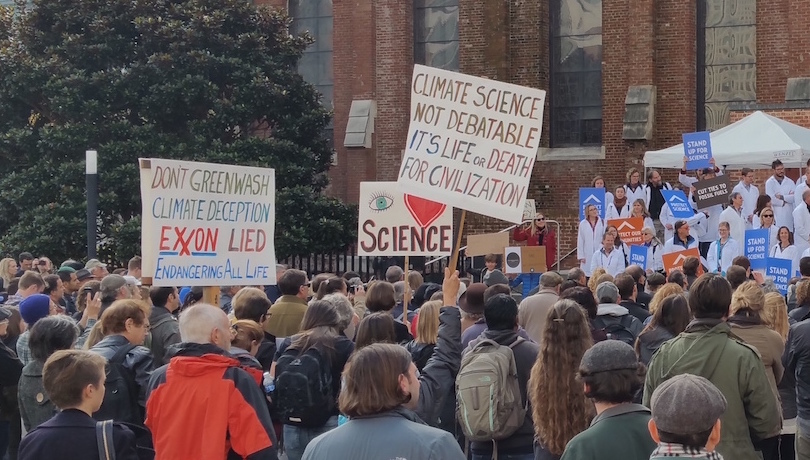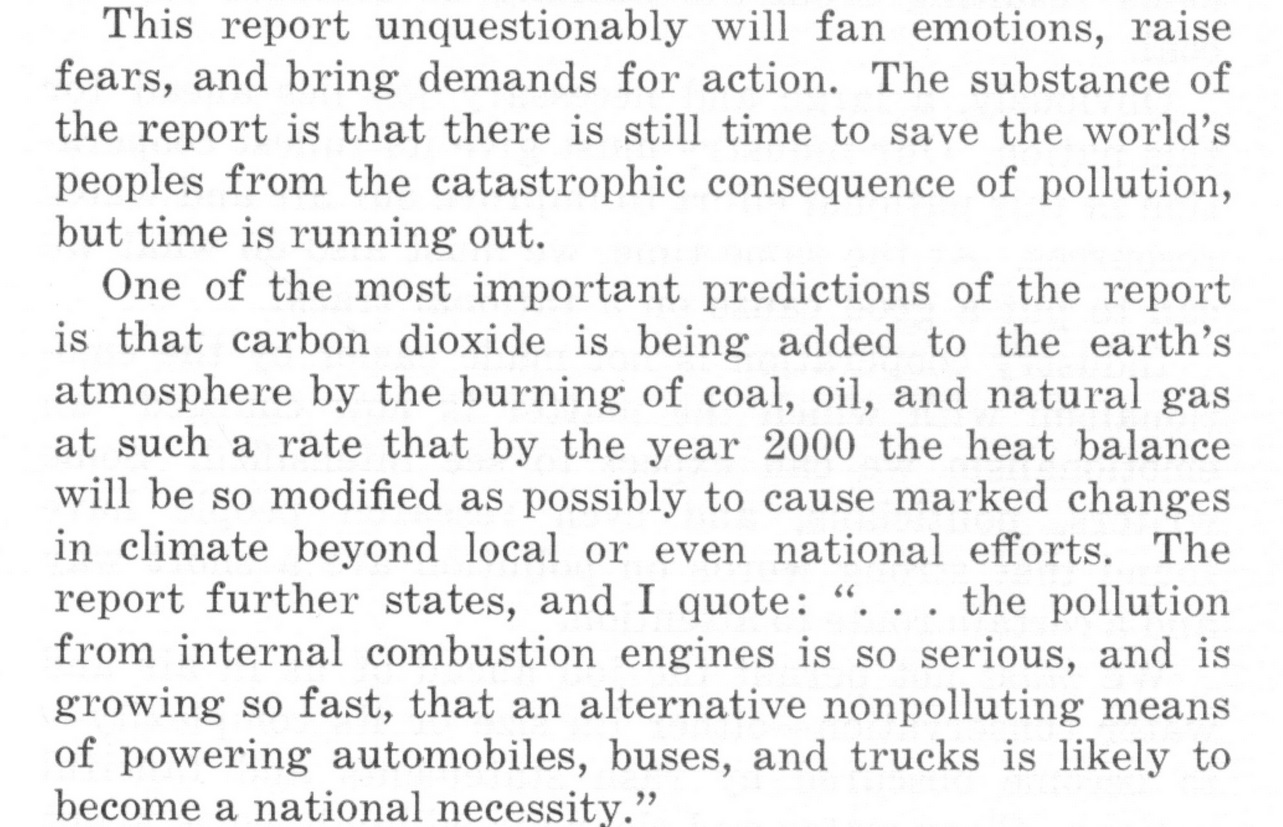Just in case fossil fuel companies had forgotten when and how much they knew about the impacts their products have had on the climate, a reminder came at them in court this week.
On January 29, six researchers studying climate misinformation filed one of eight friend-of-the-court briefs in the Ninth Circuit Court of Appeals supporting the California communities suing fossil fuel companies for climate damages.
The dozens of companies, which include a variety of oil, gas, and coal producers and refiners, such as Chevron, ExxonMobil, and Peabody, are trying to get the cases moved from state to federal court, where similar climate liability lawsuits from San Francisco, Oakland, and New York City have not fared so well. The Court of Appeals is lumping together six suits from California counties and cities while deciding where they should be tried.
Some of the top academics examining fossil fuel companies’ actions and communications around climate change were involved in filing the brief, which rather concisely summarizes the major take-aways from their research in its table of contents.
To sum up even more, fossil fuel companies:
- knew the risks of burning their products on the climate.
- worked proactively to cover up that knowledge and discredit climate science.
- tried to protect their own assets from climate impacts by using the very same science they sought to undermine in public.
The researchers filing the brief include Naomi Oreskes (co-author of Merchants of Doubt) and Geoffrey Supran of Harvard University, Robert Brulle of Brown University, Justin Farrell of Yale University, Benjamin Franta of Stanford University, and Stephan Lewandowsky of the University of Bristol, UK. They’re joined in this brief by the Center for Climate Integrity, an initiative that provides legal, scientific, and policy support for affected communities seeking climate damages from polluters.
The other seven supporting briefs filed the same day came from Senator Sheldon Whitehouse (Democrat from Rhode Island and vocal climate champion), climate and consumer advocacy nonprofits, climate scientists and scholars, states, and government groups.
Harvard historian of science Naomi Oreskes at a December 2016 rally calling on scientists to stand up for science.
The reason social scientists and science historians decided to get involved in this legal battle, they write, is because these lawsuits in California center around the fact that the fossil fuel companies “affirmatively and knowingly concealed the hazards that they knew would result from the normal use of their fossil fuel products through misrepresentation about those products and deliberately discrediting scientific information related to climate change.”
In order to make things easy for the courts, these researchers created what is basically a highlight reel of these industry misrepresentations and disinformation campaigns in their 55-page brief.
It draws from fossil fuel industry records, such as the 1965 speech by the American Petroleum Institute CEO on the “catastrophic consequence” of carbon pollution.
Exerpt of API President Frank Ikard’s 1965 speech on climate change and fossil fuels.
And cites investigations by journalists, such as the Inside Climate News team that uncovered what #ExxonKnew in its series “Exxon: The Road Not Taken,” and Amy Westervelt’s recent podcast Drilled, which chronicles the creation of climate denial.
Of course, the brief also points to the work of the researchers themselves, including Oreskes and Supran’s analysis of nearly four decades of Exxon internal and external communications, which found that the oil giant changed its tune on climate change depending on whether it was speaking privately or publicly.
Less than a decade after World War II, the fossil fuel industry was studying CO2 pollution. Within a few years, it knew its products threatened global warming. Its response? To turn around & orchestrate an anti-science, anti-policy denial campaign dwarfing even Big Tobacco’s. 1/n pic.twitter.com/L1FfJu9Dy3
— Geoffrey Supran (@GeoffreySupran) January 30, 2019
As Supran put it on Twitter, the brief is intended as “a one-stop, up-to-date primer” on the fossil fuel industry’s efforts to “orchestrate an anti-science, anti-policy denial campaign dwarfing even Big Tobacco’s.”
But if you’re looking to go deeper, try scoping out the individuals and organizations involved in this continuing campaign in DeSmog’s Climate Disinformation Database.
Main image: Scientists including Naomi Oreskes and Stephan Lewandowsky spoke out at a Stand up for Science rally in December 2016. Credit: DeSmog
Subscribe to our newsletter
Stay up to date with DeSmog news and alerts







